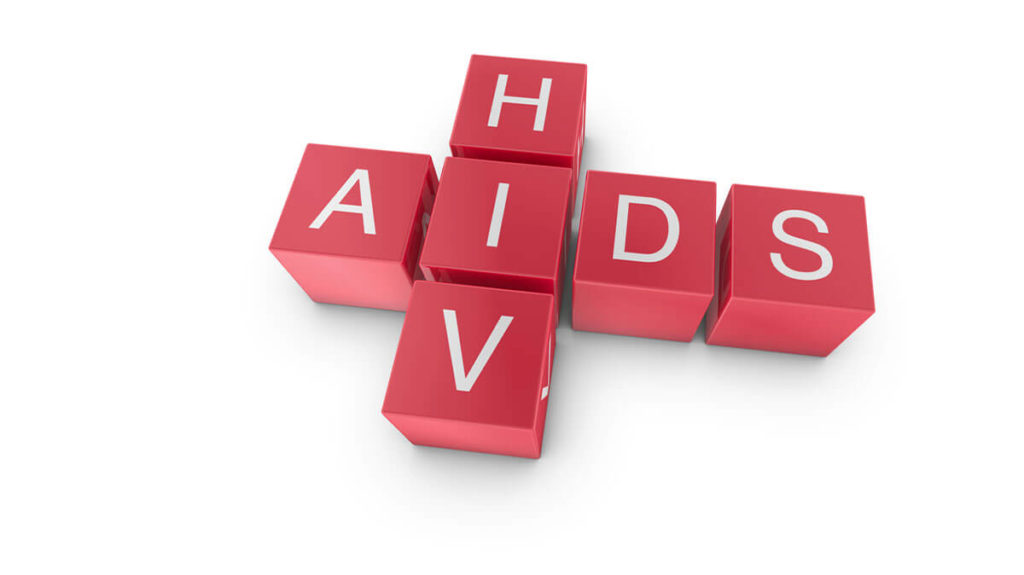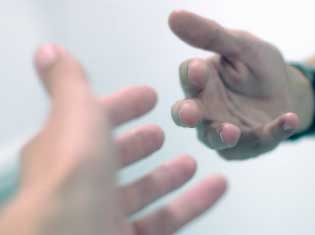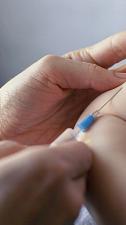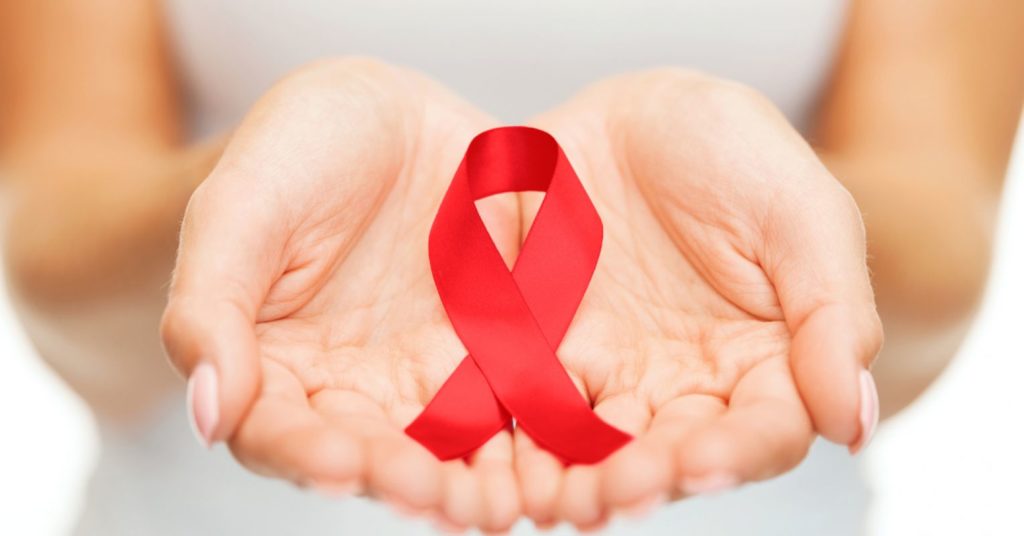What Do HIV and AIDS Stand For?
HIV stands for Human Immunodeficiency Virus. HIV attacks certain cells of the body’s natural defense or ‘immune’ system, eventually weakening the body’s ability to fight infections.
Eventually, HIV infection always develops into AIDS, or ‘Acquired Immune Deficiency Syndrome’. AIDS is diagnosed when the body can no longer fight infections and diseases that a normal healthy person would be able to resist.(These illnesses are called ‘opportunistic’, because they take advantage of a ready weakened immune system.)
Because HIV sometimes advances slowly, many people can live for years without any symptoms. Some may not even know that they have been infected.
How does one get HIV and AIDS?
HIV is passed from person through body fluids such as blood, semen, vaginal fluid, and breast milk. Although the virus may exist in very low concentrations in tears and saliva, there is no evidence that it is passed along in these fluids. Once a person is infected, they can infect others.
Methods of infection include:
- Sexual Contact. This most commonly includes unprotected vaginal and anal sex, especially rough activity that damages the delicate lining of these passages. The virus may also be passed by using unwashed sexual devices. People with a sexually transmitted disease (STD), such as herpes or gonorrhea, generally run higher risk because these illness can cause inflammation and breast in the skin which cam make it easier for HIV to enter the body. The risk of contracting HIV increases with the number of sexual partners.
- Contaminated Needles. This is another common way of transmitting HIV. Contaminated needles include shared needles and syringes for injection drug use, and unsterilized needles use for tattooing, skin piercing or acupuncture. Healthcare workers have been contaminated HIV-infected blood.
- Mother to Child. An infected mother can transfer the virus to her baby during pregnancy or birth, or through breast-feeing.
- Blood Products or transfusions. Infection with HIV is a risk for people treated with blood products in a country where blood products are not carefully screened.
HIV Infection is NOT passed by:
- Casual contact, such as shaking hands
- Hugging, or kissing
- Being coughed or sneezed on
- Sweat or tears
- Donating blood
- Swimming pools
- Toilet seats or telephones
- Sharing bed linens, towels, eating utensils, or food
- Insect or animal bites
What are the Symptoms of HIV?
In most cases, symptoms similar to the flu-including swollen lymph glands in the neck and the groin, fever, headache, aching muscles, and fatigue often develop about two to eight weeks after being infected with HIV, and generally last two to three weeks.
The next stage, asymptomatic infection, is a symptom-free period that may last up to 10 years or more. Some people, however, progress to the symptomatic HIV infection stage within a few months. The following symptoms, which are more severe and persistent in nature, may appear.
For Example:
- Skin rashes
- Diarrhea
- Unintentional weight loss
- Short-term memory loss
- Swollen and/or bleeding gums
- Fungal infection in the mouth and/or throat
- In women, persistent and severe vaginal yeast infections
- Sores on the genitals and/or mouth caused by herpes
If HIV remains untreated, it will eventually weaken the immune system to the point where AIDS develops. When this happens, the risk of developing certain cancers and life-threatening complications increases as a result of severe infections. These conditions may also be more severe and harder to resist and treat because the immune system is already weakened by AIDS. The course of the disease, and the symptoms that develop as a result, can vary greatly from person to person.
Treating HIV and AIDS
- Treatment for HIV/AIDS has come a long way in the past 20 years. Anti-HIV medications reduce the levels of HIV in the blood. This helps the immune system to partially repair itself. As a result, many people with HIV /AIDS in Canada are living longer, healthier lives. However, it is important to know that anti-HIV medications are not a cure for HIV/AIDS.
- Other medications-including antibacterials, antivirals and antifungals can prevent and treat the development of opportunistic infections that can occur.
- If one develops Kaposi’s sarcoma or other cancers, their doctor may refer them to a cancer specialist, who may order radiation therapy, chemotherapy and/or surgery as needed.
How can one avoid getting HIV and AIDS?
There is no vaccine to prevent HIV infection. Therefore, the best prevention is to reduce the risk of infection:
- Practice safe sex.The only sure way to prevent HIV infection is to abstain from sex altogether. Other options include:
- Using a new latex condom each time one has vaginal or anal intercourse. Plastic (Polyurethane) condoms (i.e. lambskin) should not be used as they do not block the HIV.
- If a lubricant is used with a latex condom, it should be one that is water-based. Petroleum jelly, oils, or cold cream can weaken the latex and may cause a condom to break.
- Although experts previously thought that the spermicide nonoxynol-9 helped reduce the risk of HIV infection, they now believe that this product may, in fact, irritate the vagina and cause small tears in the lining, thus making it easier for HIV to enter the body.
- If oral sex is practiced, a condom, a dental dam, or plastic wrap should be used.
- Use clean needles.While injecting illegal drugs is never a good idea, it is important never to share needles or syringes. Many communities have needle exchange programs. Speak to your local AID service organization to find out about the availability of these programs in your area.
- Be careful when traveling.Not all countries screen blood and blood products for HIV. If injured while in another country and treated with blood or blood products, talk with your doctor as soon as you return home.
- Talk to your doctor if you are HIV-positive and pregnant, or thinking about becoming pregnant. You can reduce the risk of transmitting HIV to your baby if you take anti-HIV treatment during pregnancy, and while giving birth. The risk can be further reduced if your baby is delivered by caesarean section, then given anti-HIV medication for the first six weeks after birth.
- Do not breast-feed if you are HIV-positive. HIV can be passed to your baby through breast milk.
Living with HIV or AIDS
It is possible to live for many years with HIV and AIDS. The following healthy lifestyle tips will help ensure quality of life for as long as is possible.
- See your doctor regularly. From time to time, the doctor may need to modify the combination of anti-HIV medications used, to keep HIV levels low.
- Take medication as prescribed. It is important to follow the doctor’s instructions exactly. If you or your loved ones have trouble taking your medications as prescribed and on time, talk to your doctor or nurse about this. Anti-HIV medications may cause side effects, so it’s important to discuss ways of coping with these side effects with your doctor, nurse and/or pharmacist.
- Get flu and pneumonia vaccines. Any further illness can weaken an already immune system.
- Keep your hands clean. Wash your hands well after using the bathroom, after being in public places, and before preparing food in order to lower your chances of catching infections. Wear latex or rubber gloves when handling wet garbage such as diapers and bandages.
- Do not smoke or take illegal drugs. These can further weaken your body. If you do smoke, talk to your doctor about quitting.
- Eat a healthy diet.Good nutrition can give you energy and keep your immune system strong. In addition to eating plenty of protein, cooking or peeling fruits and vegetables before you eat them (germs on their skins can cause illness), and taking vitamin and mineral supplements as directed, avoid foods that may make you more susceptible to infections. These high-risk foods include un-pasteurized dairy products, raw eggs, and raw seafood. Cook all meats until there is no sign of pink, even in the centre.
- Get plenty of rest.
- Exercise regularly. Talk to your doctor before starting any exercise program.
Written by: Winter Rose
Copyright © by www.siyalla.com
[Earlier our website was www.ehealthut.com]




